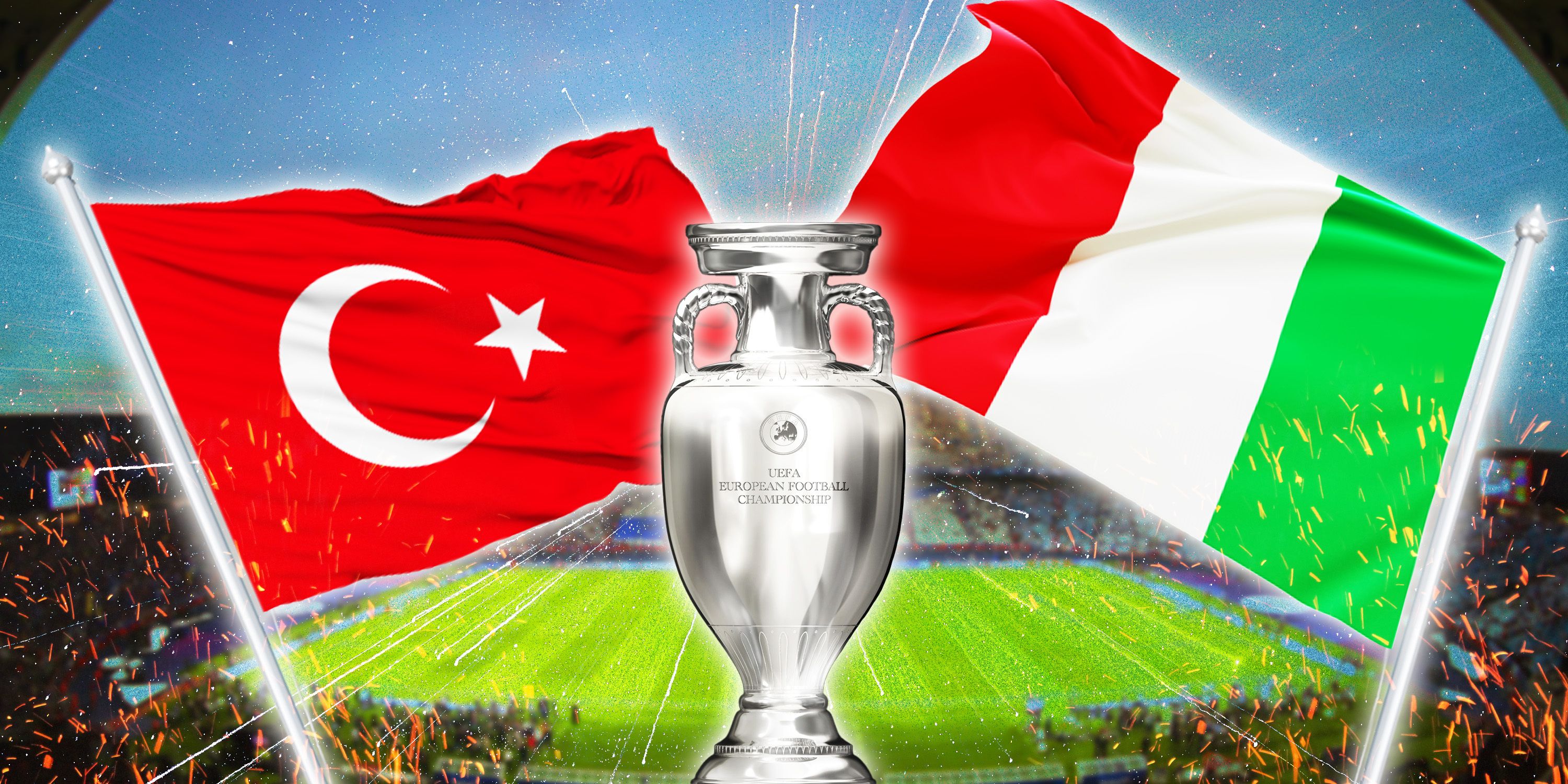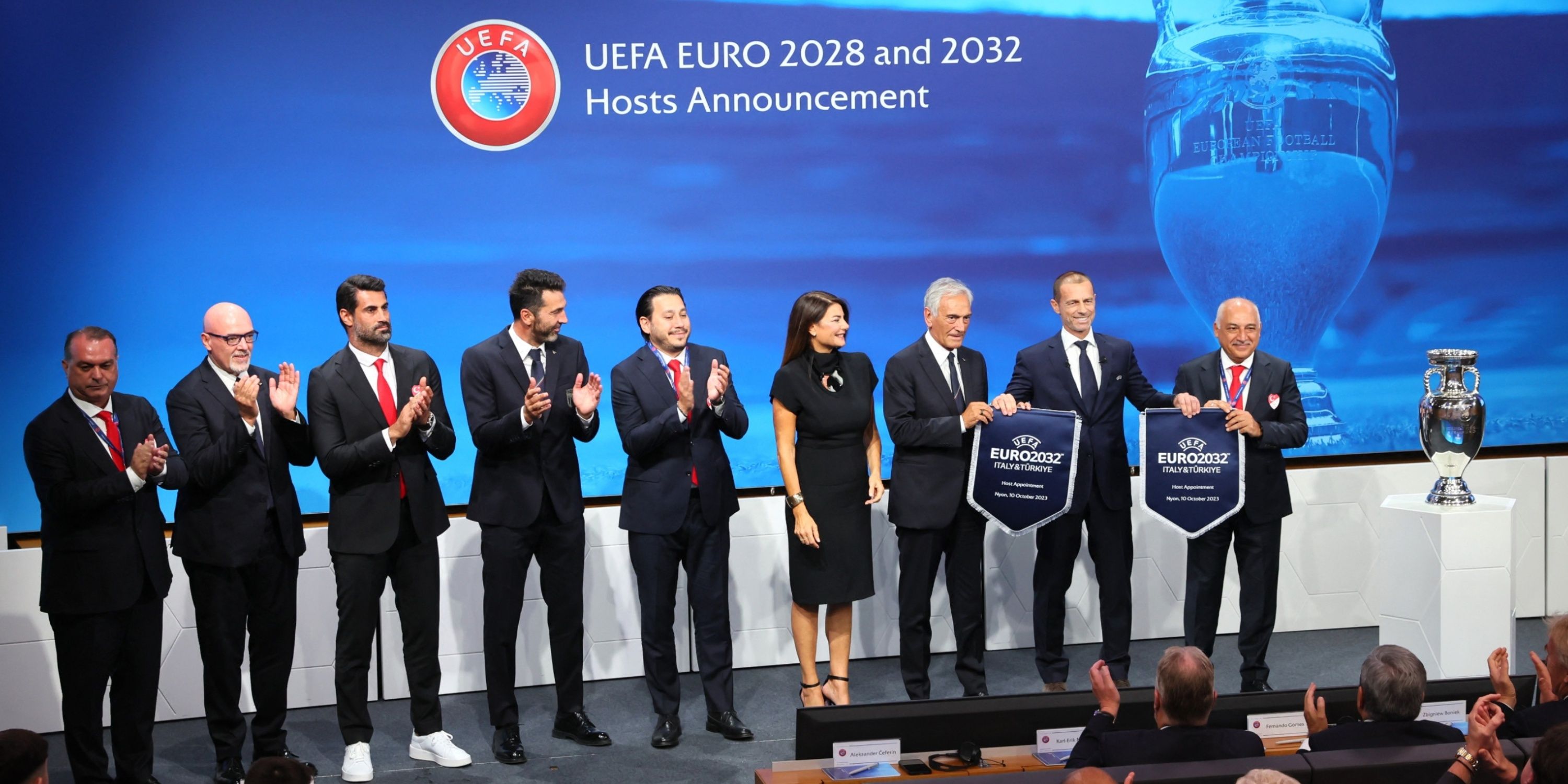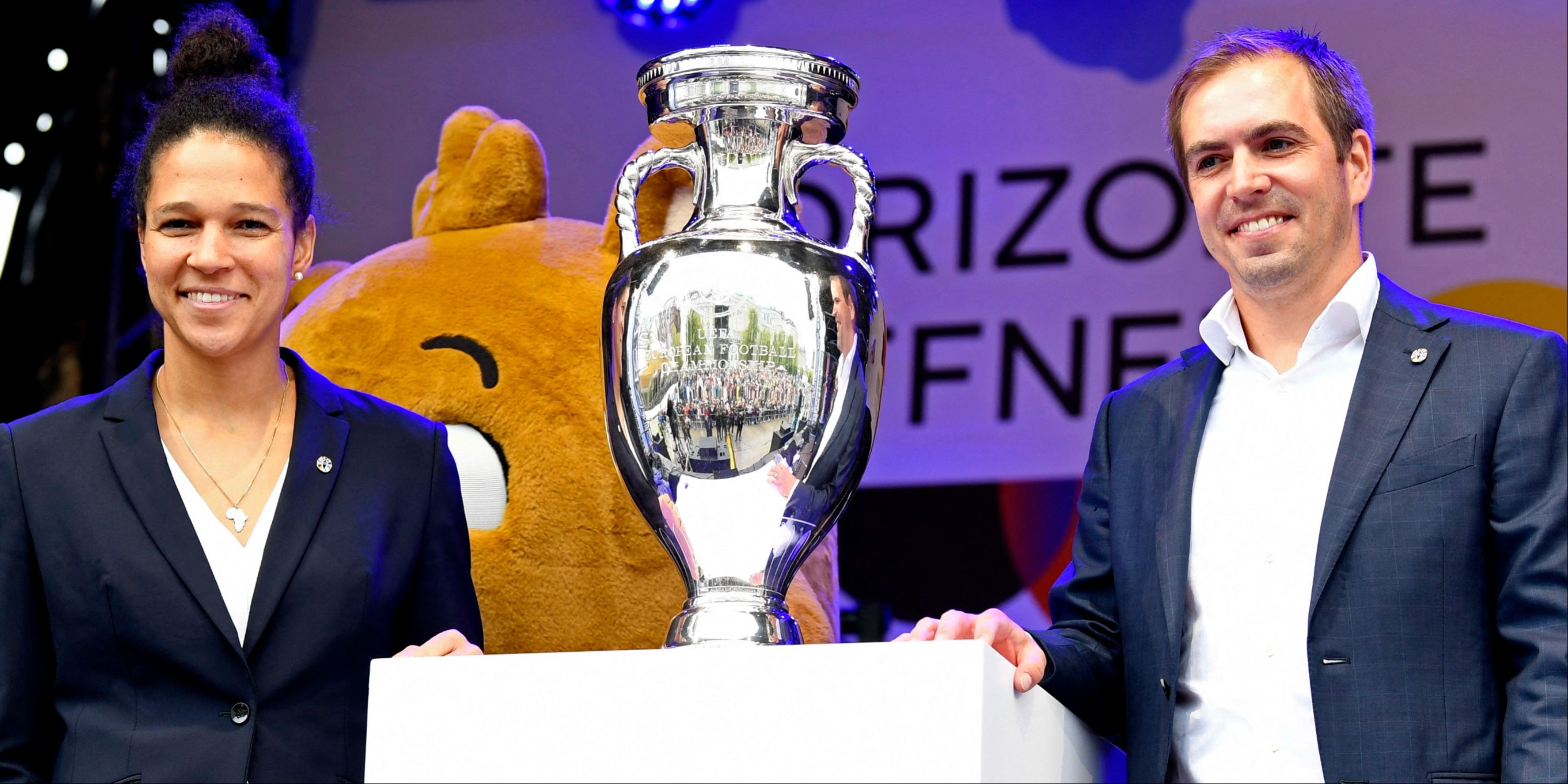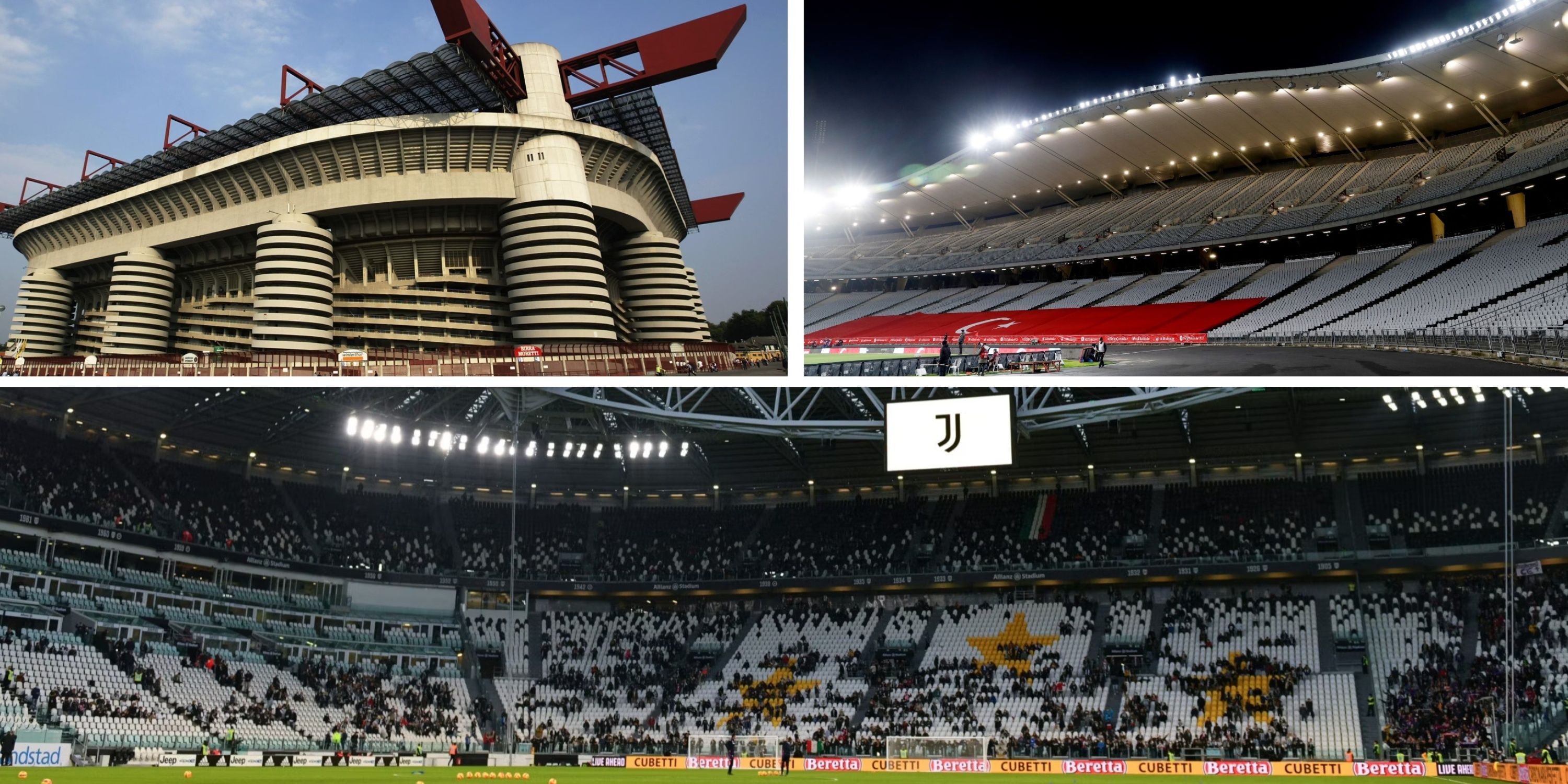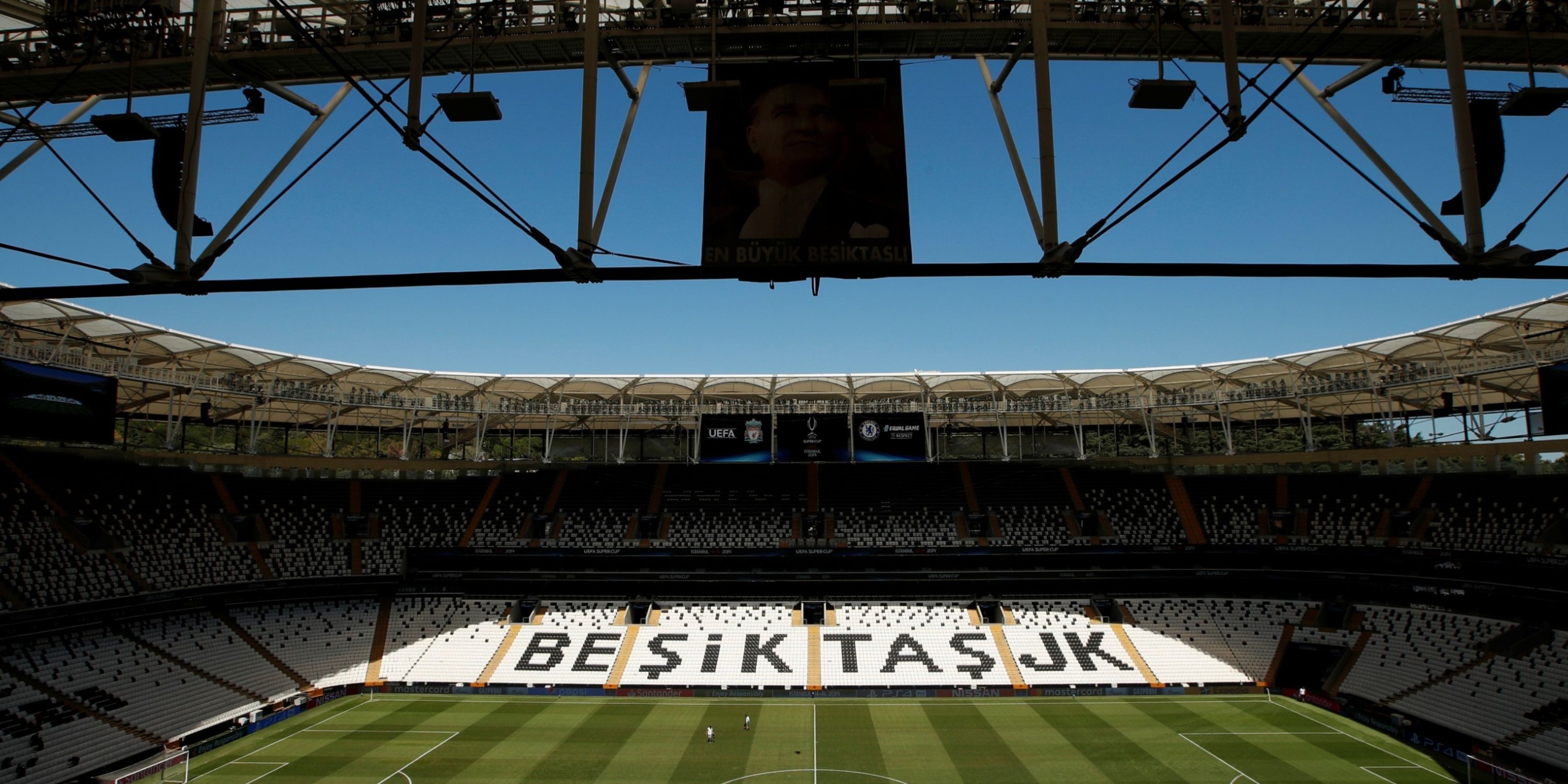A look at all the important information fans need to know about Euro 2032 in Italy and Turkey
Highlights
- Italy and Turkey have been chosen to co-host Euro 2032, with Italy hosting for the third time and Turkey hosting for the first time.
- The bidding process saw Italy express their desire to host Euro 2032, while Turkey initially submitted bids for both Euro 2028 and 2032.
- The proposed venues for Euro 2032 include stadiums in Italy and Turkey, with the final selection to be made in 2026. Both countries have some stadiums that require renovation.
Italy and Turkey have been selected to co-host Euro 2032 after the latter pulled out of the race to host Euro 2028. This will be Italy’s third time as host (1968 and 1980), and first as a co-host. Turkey, after years of bidding, have finally been picked for their first major tournament. Since the turn of the century, Turkey has hinted at a World Cup bid, tried for the Olympics – the reason why the Atatürk Olympic Stadium was built, and continued to bring the Euros to this persistent nation.
Although the competition is a long way away, there’s no harm in making preparations as early as possible and putting away those pennies. In the meantime, Italy and Turkey will be spending all of their money to fix the issues they have with their stadiums and infrastructure as soon as possible. Here is a look at everything you need to know about the tournament, from the bidding process to the potential venues, plus more.
Bidding Process
For Italy, the bidding process was quite simple; they wanted to host Euro 2032. In contrast, Turkey went a different route by submitting bids to host either Euro 2028 or 2032. Since 2008, Turkey has submitted bids to host Euro 2008 (joint with Greece), 2012, 2016, and 2024, losing out on each occasion. On this occasion, the Turkish Football Federation (TFF) wanted to double down and realise a long-term goal.
It was on July 28th that the Italian FA (FICG) and the TFF informed UEFA that they were altering their bids to a joint bid, per UEFA. The acceptance of the joint bid by UEFA meant that Turkey would automatically withdraw from hosting Euro 2028, subsequently leaving the UK and Ireland as the sole bid for that tournament. More importantly, the joint bid by Italy and Turkey was the only bid for the 2032 tournament.
The FIGC chose two ambassadors to present the dossier to the UEFA selection panel: The head of the Delegation, Gianluigi Buffon, and the journalist and TV presenter, Ilaria D’Amico. The Turkish ambassador was Volkan Demirel, the ex-goalkeeper of the Turkish National team (66 appearances between 2004 and 2014). There was no surprise when the joint bid was chosen on October 10th.
How Qualifying Works
The draw for the qualifying will likely take place in Rome or Istanbul around October 2030. With Italy and Turkey given the golden ticket to the finals, the remaining 50+ teams – currently 54, including Russia – will be split into ten groups of five or six teams. The top two from each group will qualify for the final tournament automatically. That leaves two more spots available, which will be decided via the play-offs. The teams that enter the play-offs will be decided via the Nations League. How those playoffs will look is unclear, but the likelihood is that eight teams will be selected based on their performances in the 2030/31 Nations League – nominally the group winners of Leagues A and B unless they have already qualified. Those nations, if already qualified, will be replaced by the next best-ranked teams in their Nations League groups. The four nations from League A will play knockout football to determine one of the nations to make the finals, and League B nations will do the same for the other. If there aren’t enough teams from League A or B to make up the four play-off teams, the highest-ranked League C winner yet to qualify for the finals will be included, and so on. The format is unlikely to change from the Euro 2024 play-offs method.
As you can imagine, the dates for this feast of football haven’t been set. So, all we can do is look back at previous tournaments for an indication of when everything is likely to kick off. Fans should expect qualifying to begin around March 2030 and completed around March 2031. The Euro 2032 tournament proper is unlikely to change from its traditional June start date, with the final again being played in July. It is important to remember that UEFA may create another tournament or alter one of the pre-existing tournaments between now and the end of the decade. Although no plan has been hinted at, any alteration will undoubtedly affect the schedule of Euro 2032.
Potential Euro 2032 venues
The co-hosts have proposed 20 stadiums. Of the 20 venues, 10 will be selected to stage matches, five per country, by October 2026. The two nations had to make sure that the list of venues submitted could satisfy the tournament requirements set out by UEFA in a 190-page document, which covers everything from stadium capacity to the surrounding areas. Here are the preliminary venues selected by the FICG and TFF listed on the UEFA website:
The capacities have been rounded up/down to the nearest thousand based on the information from
stadium.db
Italy
|
City |
Stadium |
Capacity |
|---|---|---|
|
Milan |
Stadio San Siro – Giuseppe Meazza |
76000 |
|
Rome |
Stadio Olimpico |
73000 |
|
Bari |
Stadio San Nicola |
58000 |
|
Naples |
Stadio Diego Armando Maradona |
55000 |
|
Florence |
Stadio Artemio Franchi |
43000 |
|
Turin |
Juventus Stadium |
42000 |
|
Bologna |
Stadio Renato Dall’Ara |
38000 |
|
Genoa |
Stadio Luigi Ferraris |
33000 |
|
Verona |
Stadio Mercantonio Bentegodi |
39000 |
|
Cagliari |
Stadio Sant’Elia |
16000 |
Turkey
|
City |
Stadium |
Capacity |
|---|---|---|
|
Istanbul |
Atatürk Olympic Stadium |
75000 |
|
Istanbul |
Ali Sami Yen Stadium |
52000 |
|
Istanbul |
Sükrü Saraçoglu Stadium |
51000 |
|
Ankara |
New Ankara Stadium |
45000 |
|
Bursa |
Timsah Arena |
43000 |
|
Trabzon |
Şenol Güneş Sport Complex |
41000 |
|
Konya |
Konya Metropolitan Stadium |
42000 |
|
Gaziantep |
Gaziantep Kalyon Stadium |
36000 |
|
Antalya |
Antalya Stadium |
33000 |
|
Eskişehir |
Eskişehir Stadium |
35000 |
Many of the stadiums above need to be renovated, according to UEFA, while the New Ankara Stadium hasn’t been built yet, but the construction is ongoing, per stadiumdb. By decision time in 2026, both nations will have plenty of suitable venues to pick from.
Euro 2032 Venues That Could Make the Cut
Both nations have an array of options available, with some of the venues boasting recent experiences of staging major games. Rome’s Stadio Olimpico was selected to stage four matches during Euro 2020, while the San Siro in Milan and the Juventus Stadium in Turin were both utilised during the 2021 UEFA Nations League finals. It would be a massive shock if the three venues didn’t make the final list to host a game in Euro 2032. The other two spots are up for grabs in Italy.
The city of Istanbul has hosted quite a few European games, too. The Atatürk Olympic Stadium welcomed the UEFA Champions League final in 2023 – the second time the game has been played here. The 2019 Super Cup was played at Beşiktaş’s Vodafone Park – not among the preliminary list – and Şükrü Saracoğlu Stadium staged the last-ever UEFA Cup final in 2009.
The Olympic stadium, along with the Ali Sami Yen and Şükrü Saracoğlu are expected to provide three of the locations. The Turkish national team have played a few games at Eskişehir Stadium and Konya Metropolitan Stadium in the last few years, too. The New Ankara Stadium’s completion may have an impact on the final decision, too.
Beşiktaş’s Vodafone Park Snubbed
Interestingly, Vodafone Park’s omission from the ten stadiums put forward is believed to be a somewhat personal (or maybe vindictive) choice by TFF president Mehmet Büyükekşi. The tension between himself and Beşiktaş president Ahmet Nur Çebi, reported by stadiumdb, has been ongoing since Çebi blamed Büyükekşi for helping Galatasaray and Fenerbahçe with his post-earthquake decisions during the 2022/23 Turkish Super Lig season. In a recent game, Büyükekşi attended a UEFA Europa League Conference game in which Beşiktaş fans started chanting slurs towards the TFF president. Unsurprisingly, Büyükekşi walked out with the home team 2-0 up. They lost the game, which felt almost karmic.
It is also possible that having four of the five chosen stadiums to host games in Turkey being in Istanbul would have strained the city’s infrastructure, and alienated a lot of Turks that live in other parts of the country. If anything, this feud may have helped the TFF, otherwise Vodafone Park would have been a great choice because of its perfect location in the middle of the city.
Logistics
Euro 2032 will be the sixth time the tournament will stretch over more than one nation. A decision that will probably not go down well with environmental groups, especially at a time when environmental issues are at the forefront of most discussions. It doesn’t help appease people when Italy and Turkey don’t share a border.
For fans who want to travel between the countries by car, it will take around 15 hours. A journey that will take you from Italy through Slovenia, Croatia, Serbia, and Bulgaria, or vice versa if starting in Turkey. There are also ways to get between the countries using public transport, which will require the best part of two days.
It is not surprising that a flight is easily the best option. For example, a direct flight between Rome and Istanbul is around £90 and takes under three hours. When taking into consideration inflation and likely price hikes by airlines at the time of the tournament, it should still be the best option.
Other concerns
Although both nations are from a similar region, the cultural differences are quite clear to see. “In a moment of political difficulty, it is a good opportunity to open a dialogue with a nation that has great traditions different from our own. Understanding and collaborating can be a beautiful thing”, as Gianluigi Buffon explained during the presentation in Nyon.
Turkey will be the first predominantly Islamic nation to host the tournament, with relatively strict laws and a conservative population outside of Istanbul, Izmir, and Antalya. Consequently, Trabzon, Gaziantep and Konya may have to be avoided as venues, especially if Turkey has aspirations (and they do) of hosting further tournaments and a World Cup.
Turkey is also experiencing record levels of inflation, which will undoubtedly have an impact on the preparations if it continues at a similar rate for the next eight years. As the Turkish Lira continues to collapse, football fans who decide to make the trip to the country will need to monitor costs closely, and book flights and hotels as early as possible.
Italy aren’t without their problems, either. Out of the 10 stadiums chosen by the FIGC, seven stadiums don’t have any renovation plans on the horizon. Yet, the only modern stadium on that list is the Juventus Stadium, which was built in 2011. The four biggest stadiums – San Siro, Olimpico, San Nicola, and Maradona – are all quite old and could use renovation, but it’s only the smaller stadiums on the list that have renovation plans in motion (Cagliari, Genoa, Fiorentina). Most surprising is the inclusion of the Stadio Mercantonio Bentegodi, which is one of the oldest stadiums in the entire country.
As this Forbes article nicely puts it, Italian councils and governments love to stifle their teams’ quest for modernisation. Even when a team puts together a very impressive presentation for renovation which is accepted, two years later the plan gets scrapped by the incoming officials. It will be interesting if the agreed-upon renovations in Genoa, Cagliari, and Fiorentina will follow a similar path to failure, or will Italian councils finally play ball, allowing teams to give their homes a much-needed makeover.
Both nations will have plenty of time to talk to authorities, make decisions, and sort out their economy by the time this tournament comes around. Before then, we still have Euro 2024 to enjoy in Germany, and Euro 2028 to plan for in the UK and Ireland. Ci Vediamo nel 2032. 2032’de görüşürüz. See you in 2032.

